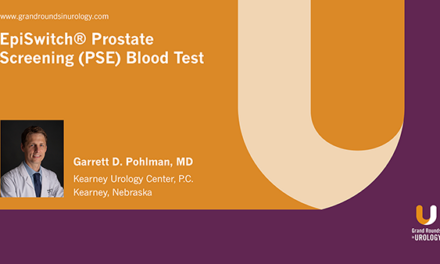Brian J. Flynn, MD, presented “Pain Management Advice for Urologists in the Wake of the Opioid Crisis” at the 11th Urology Today conference on October 27, 2023.
This content is available free to the GRU Community. Login or create an account to view it.
How to cite: Flynn, Brian J. “Pain Management Advice for Urologists in the Wake of the Opioid Crisis.” October 2023. Accessed Jul 2025. https://grandroundsinurology.com/pain-management-advice-for-urologists-in-the-wake-of-the-opioid-crisis/
Pain Management Advice for Urologists in the Wake of the Opioid Crisis – Summary
Brian J. Flynn, MD, discusses the opioid crisis in the United States, and the role of urologists in taking action against this growing problem. Dr. Flynn begins by highlighting factors that contribute to the opioid epidemic’s growth, with a specific focus on Colorado. He drives home the urgency behind addressing this epidemic by emphasizing the ubiquity of opioid-related deaths across all ages, genders, and socio-economic strata.
Dr. Flynn argues that the problem lies specifically in prescribing opioids in far excess post-surgery, as most patients take only a fraction of what is prescribed, with extra pills then being distributed to, and consumed by, non-patients. He underlines the correlation between the number of opioids prescribed and the number of opioid-related deaths.
Dr. Flynn examines the role of Urology in prescribing opioids relative to other fields of medicine in prescribing opioids, finding that urologists land somewhere in the middle in terms of prescribing opioids to patients. He looks at different urology surgeries and recommends alternatives to opioids to address patients’ post-op pain.
Dr. Flynn concludes with a review of the ALTO project from Colorado that aims to offer alternatives to fentanyl whenever possible. He provides practical solutions to address the opioid epidemic at the physician level, but recognizes that changes at multiple levels of practice and legislature are needed to address it effectively on a national scale.
About The 11th Urology Today Conference:
Presented by chair Ryan P. Terlecki, MD, FACS, the 11th Urology Today conference was designed to keep urologists, urologic oncologists, and other healthcare providers educated on the most pertinent issues in urology practices. Areas of focus included urologic oncology, men’s health and reconstruction, female urology, pediatric urology, kidney stones and related conditions, and methods of providing the best care amidst the required logistics of the business side of medicine.
For further educational activities from this conference, visit our collection page.
ABOUT THE AUTHOR
Brian J. Flynn, MD, is a professor of surgery/urology and fellowship director in Functional and Reconstructive Urology (FRU) at the University of Colorado, Anschutz Medical Center, Division of Urology, in Denver, Colorado. Dr. Flynn earned his medical degree from Temple University in Philadelphia, Pennsylvania. He completed a six-year residency in urology at Geisinger Medical Center in Danville, Pennsylvania, and a one-year fellowship in female urology and reconstructive urology at Duke University in Durham, North Carolina. He is board-certified in urology and female pelvic medicine and reconstructive surgery. Dr. Flynn earned his Bachelor of Science in biomedical engineering from the University of Rochester in Rochester, New York.
Dr. Flynn’s focus is in functional and reconstructive urology with an active
practice in male/female urinary incontinence, voiding dysfunction, urethral stricture disease, and robotic bladder/ureteral reconstructive surgery. He is a national leader in the use of minimally invasive surgical techniques and robotics for the treatment of urinary incontinence, bladder neck contracture, urethral stricture, and ureteral obstruction. He has developed new techniques for AUS, ProACT, bladder neck reconstruction, and suprapubic catheter placement.
Dr. Flynn has authored numerous clinical papers, surgical videos, and textbook chapters. He has also presented internationally on surgical management of urethral stenosis with an emphasis on non-transecting techniques, post-prostatectomy incontinence, genitourinary fistula, and ureteral stricture disease.





